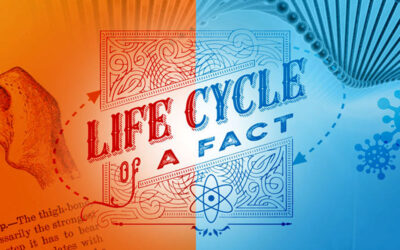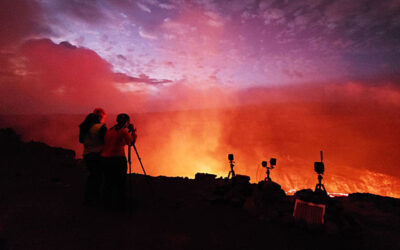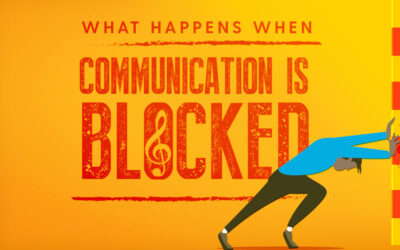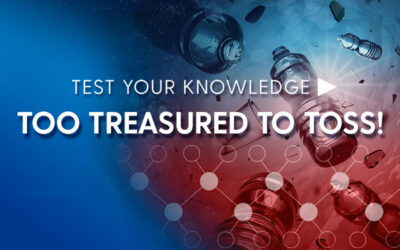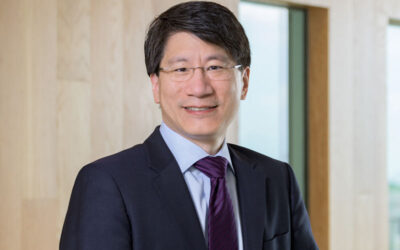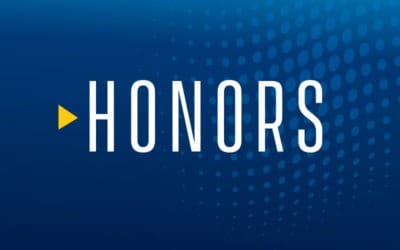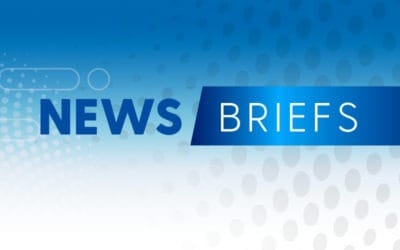Adding peril to a pandemic
Deadly ‘infodemic’ fueled COVID’s costly global march
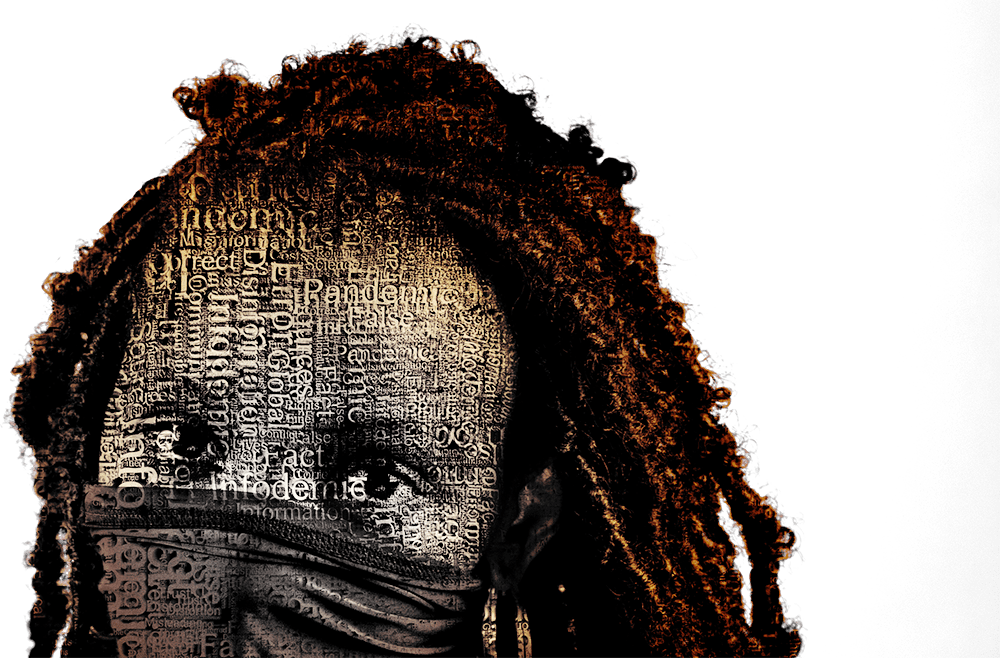
As our world continues its struggle against the COVID-19 pandemic, another global threat has proven tougher to arrest, just as lethal and likely to be a key factor in crises to come.
The World Health Organization in 2020 identified this emerging threat as an “infodemic,” with high-transmission contagions that can carry misinformation (error and distortion) and disinformation (intentionally misleading or false) at the speed of light. The plague circulates freely, undeterred by facts, evidence or editorial standards.
Unlike the pandemics that came before it, COVID-19 emerged in the midst of this perilous environment, demonstrating again the critical need for effective science communication, shaped with clarity and keen attention to ethical boundaries.
“It’s not merely an academic topic,” said University of Delaware ethicist Tom Powers, associate professor of philosophy and director of the Center for Science, Ethics and Public Policy. “Lives hang in the balance.”
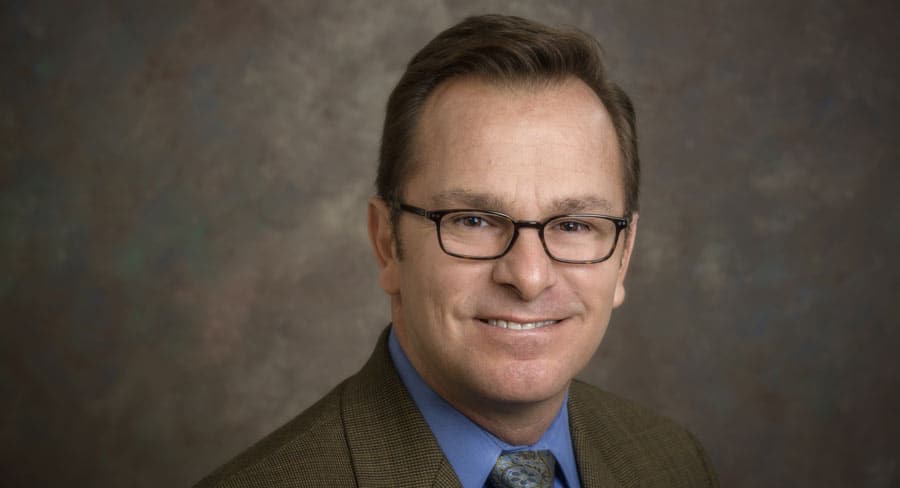
Tom Powers, associate professor of philosophy and a specialist in scientific ethics, directs UD’s Center for Science, Ethics and Public Policy.
The World Heath Organization issues infodemic warning
In September 2020, just six months after the WHO identified COVID-19 as a pandemic, it joined with eight other international organizations to issue a collaborative warning about the infodemic and the deadly impact it had already demonstrated.
“Misinformation costs lives,” the authors wrote. “Without the appropriate trust and correct information, diagnostic tests go unused, immunization campaigns (or campaigns to promote effective vaccines) will not meet their targets and the virus will continue to thrive.
“Furthermore, disinformation is polarizing public debate on topics related to COVID-19; amplifying hate speech; heightening the risk of conflict, violence and human rights violations; and threatening long-term prospects for advancing democracy, human rights and social cohesion.”
It is unclear how many of those illnesses might have been a consequence of misleading or false information. But the debate against vaccinations and other health protocols, including wearing masks, has been vigorous, hostile and persistent.
There is no magic pill to cure these ills and no testing clinics to determine which pathogens might be present and contagious in any of us. But researchers and ethicists are exploring ways to strengthen our intellectual immunity in the face of destructive messaging.
Captain Obvious need not apply
 Investigators use rigorous approaches to develop clues and pursue answers to the questions they have. It’s not a job for Captain Obvious, who sees only what is readily apparent. Getting good, reliable information requires good questions, eliminating bias, digging below the surface, considering the historic record and the complexities of context, reading the fine print, looking in unexplored places and acknowledging and correcting errors.
Investigators use rigorous approaches to develop clues and pursue answers to the questions they have. It’s not a job for Captain Obvious, who sees only what is readily apparent. Getting good, reliable information requires good questions, eliminating bias, digging below the surface, considering the historic record and the complexities of context, reading the fine print, looking in unexplored places and acknowledging and correcting errors.
It’s not for the lazy or squeamish and it often requires such things as subpoenas, bright lights, investigative reporters or electron microscopes.
Addressing an infodemic in the context of a pandemic ups the ante.
In a report called “Managing the COVID-19 Infodemic,” an ad hoc group assembled by the WHO used terms from epidemiology to describe the challenge and potential solutions.
It warned against grains of truth that are sprinkled throughout messages and provide traces of plausibility.
“The infodemic thrives on information that sounds plausible and easy to understand, and which usually contains a little portion of fact that makes it easier to believe,” the authors wrote.
False claims about the COVID virus, its variants and the vaccines produced to fight them add their own kind of viral load. Many examples — and factual responses to each — are available on the Centers for Disease Control and Prevention’s “myths and facts” webpage and on FactCheck.org’s coronavirus page. The News Literacy Project offers tools and training to help people find credible sources and check the veracity of claims.
But who’s to say what people can say?
Free speech and accountability
In the United States, the First Amendment to the Constitution offers broad protection for freedom of speech, but makes no guarantee that what is expressed will be true, meaningful, ethical or otherwise worthwhile.
And while law plays an important role in protecting people from physical threats, it hasn’t worked as well protecting people from psychological threats and false claims, said Jennifer Lambe, associate professor of communication at UD and an expert in First Amendment rights.
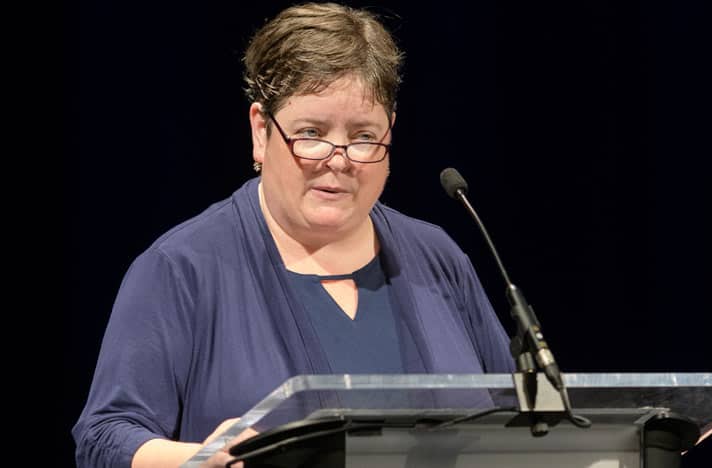
Jennifer Lambe, UD associate professor of communication, centers her research interests around First Amendment rights, specifically free speech and free press.
Market forces can shape public conversation, as the recent tug of war between Spotify and musicians whose songs were streamed by the online service showed. Neil Young announced he would pull his music from Spotify because of COVID misinformation spread by podcaster/comedian Joe Rogan on the service. A few other musicians and podcasters soon followed Young’s lead. Rogan promised to do better.
Neither the law nor the market can force people to be wise, concerned about the welfare of others or share information only from reliable sources, though. That’s on us and it can get uncomfortable and challenging pretty fast.
“For years, we were told don’t talk about religion and politics,” Lambe said. “That just made us really bad at talking about religion and politics.”
We’re not such great listeners, either, and that’s another part of the problem that requires diligence and practice.
“We need to teach people how to listen with the idea of understanding, rather than with the purpose of convincing the other person that you’re right and they’re wrong,” Lambe said. “That rarely happens. But if we can understand each other, that’s a step.”
Regulation helps to protect consumers from fraud and the Federal Trade Commission requires advertisers to be truthful and provide scientific evidence if they make specific claims about their products. For example, the agency sends warning letters to companies making unsupported claims about their product’s effectiveness against COVID-19.
But who monitors the information you consume? It depends on where you are grazing.
The need for guardrails
These processes are neither perfect nor foolproof, but they provide important guardrails that are non-existent in many parts of today’s information landscape.
Digital publishing and social media have added free-swinging gates to public communication, with little effort required or accountability demanded.
“What we have for the first time in history is a case where, through social media, the number of potential ‘journalists’ equals the number of people in the audience,” Powers said. “Through social media, everybody who is a member of the audience can — in principle — be a mouthpiece.”
Those with special expertise — scientists and public health officials, for example — have an obligation to explain what they know to the general public and also to make clear that there are things we don’t know, Powers said.
“Nobody knew how quickly the virus would spread,” Powers said. “Nobody knew about the long-haulers, the people who get the disease and have very, very difficult health effects, nobody knew about asymptomatic spread.”
Poorly crafted messages and inaccurate information from sources in powerful places added to the challenge and the confusion.

PolitiFact, a nonprofit, nonpartisan fact-checking initiative established by the Poynter Institute for Media Studies, has been working on this challenge for years and won the Pulitzer Prize for National Reporting in 2009.
In this investigative work, claims are ranked on a six-point scale, from “true” — accurate, with nothing significant missing — to “pants on fire,” which describes not only an inaccurate statement but one that is ridiculously so.
“We had message disintegration at the highest level.”
Science communicators must understand, too, that non-scientists form their beliefs in different ways, he said.
“It’s not that a scientist hands down something from on high and the layperson consumes it and believes whatever the scientist’s view is,” Powers said.
In the past, Powers has organized “Science Café” events at The Deer Park, a storied pub in downtown Newark, Delaware, to give scientists and researchers a forum for talking with the public about their studies and findings.
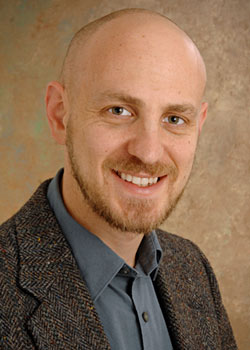
Joshua Zide
Professor and chair,
Department of Materials
Science and Engineering
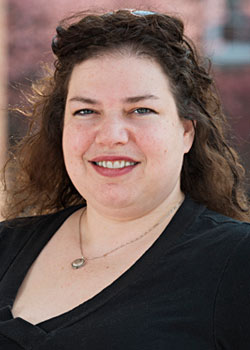
Dawn Fallik
Associate professor,
Department of
Communication
Other UD professors, too, have worked to help students develop strategies for explaining science and research in ways those without their expertise can grasp and benefit from. “Words for Nerds” is a recent example, combining the skills of journalist Dawn Fallik, associate professor of communication at UD, and the science savvy of Joshua Zide, professor and chair of the Department of Materials Science and Engineering.
“All of this was important before the pandemic,” Powers said. “Now the focus has really become the way in which misinformation and disinformation costs lives, to be very blunt about it…. With COVID, things have really crystallized.”
There are many good reasons to hear from diverse voices and perspectives, especially as the world becomes increasingly aware of histories that have been hidden, suppressed, denied or distorted.
And it is essential to look at our information infrastructure to find the weak spots, address deterioration and shore up reliable sources.
“It’s going to take a lot of work,” Lambe said.
“There are so many pieces to this. The economic situation of journalism is a big aspect of all this … and a lot of trust has to be rebuilt in the institution of journalism. Journalists have to be more transparent about the methods they’re using. People don’t realize that journalists care about ethical problems in their stories.”
Programs that build dialogue skills and news literacy can help those who wish to learn how to talk effectively with others and how to discern good sources of information, Lambe said.
“I start with the assumption that in most things free expression should happen,” she said. “But harmful things come sometimes and there have to be ways to respond to that. What are other ways to deal with the harm without limiting free expression?”
This must be a group effort, a shared mission, Powers said.
“It’s well past time that people in ethics and psychology and sociology and political science work more closely with scientists on these kinds of messages and strategies for getting people to slow down, weaning them from social media platforms as their source of information, giving better, understandable, accurate forms of scientific communication,” Powers said.
Science communicators must understand, too, that non-scientists form their beliefs in different ways, he said.
“It’s not that a scientist hands down something from on high and the layperson consumes it and believes whatever the scientist’s view is,” Powers said.
In the past, Powers has organized “Science Café” events at The Deer Park, a storied pub in downtown Newark, Delaware, to give scientists and researchers a forum for talking with the public about their studies and findings.

Joshua Zide
professor and chair,
Department of Materials
Science and Engineering

Dawn Fallik
associate professor,
Department of
Communication
Other UD professors, too, have worked to help students develop strategies for explaining science and research in ways those without their expertise can grasp and benefit from. “Words for Nerds” is a recent example, combining the skills of journalist Dawn Fallik, associate professor of communication at UD, and the science savvy of Joshua Zide, professor and chair of the Department of Materials Science and Engineering.
“All of this was important before the pandemic,” Powers said. “Now the focus has really become the way in which misinformation and disinformation costs lives, to be very blunt about it…. With COVID, things have really crystallized.”
There are many good reasons to hear from diverse voices and perspectives, especially as the world becomes increasingly aware of histories that have been hidden, suppressed, denied or distorted.
And it is essential to look at our information infrastructure to find the weak spots, address deterioration and shore up reliable sources.
“It’s going to take a lot of work,” Lambe said.
“There are so many pieces to this. The economic situation of journalism is a big aspect of all this … and a lot of trust has to be rebuilt in the institution of journalism. Journalists have to be more transparent about the methods they’re using. People don’t realize that journalists care about ethical problems in their stories.”
Programs that build dialogue skills and news literacy can help those who wish to learn how to talk effectively with others and how to discern good sources of information, Lambe said.
“I start with the assumption that in most things free expression should happen,” she said. “But harmful things come sometimes and there have to be ways to respond to that. What are other ways to deal with the harm without limiting free expression?”
This must be a group effort, a shared mission, Powers said.
“It’s well past time that people in ethics and psychology and sociology and political science work more closely with scientists on these kinds of messages and strategies for getting people to slow down, weaning them from social-media platforms as their source of information, giving better, understandable, accurate forms of scientific communication,” Powers said.
“Everybody is trying to tackle different pieces of this problem. We need a cohesive look at what’s being done and whether it’s likely to help or not.”
MORE STORIES
Life Cycle of a Fact
Is there any such thing as a fact? Who and what can we trust these days? Here’s the method to stem the madness.
True Adventures
Kīlauea volcano offered up an incredible spectacle while UD doctoral student Abigail Nalesnik was there doing fieldwork.
Getting the Message Right
It’s a problem almost as old as time: You think your words are clear, but your audience seems to hear something different than you intended—or worse, they don’t really hear you at all.
What Happens When Communication is Blocked?
Professor Isaí Jess Muñoz has produced an award-winning recording of the music of a once-repressed region of Spain.
Test Your Knowledge
How much plastic is around us and how can we stem the plastics pollution problem? Take the quiz!
Research Leadership Announced
Kelvin Lee has been appointed interim vice president for research, scholarship and innovation at UD.
Celebrating Excellence
Check out the UD faculty and students who have won national recognition for their expertise and contributions.
News Briefs
Did you know the world’s longest-operating solar research institute is at UD? Or that some old books could be poisonous? Tap into our recent discoveries and leadership appointments.


